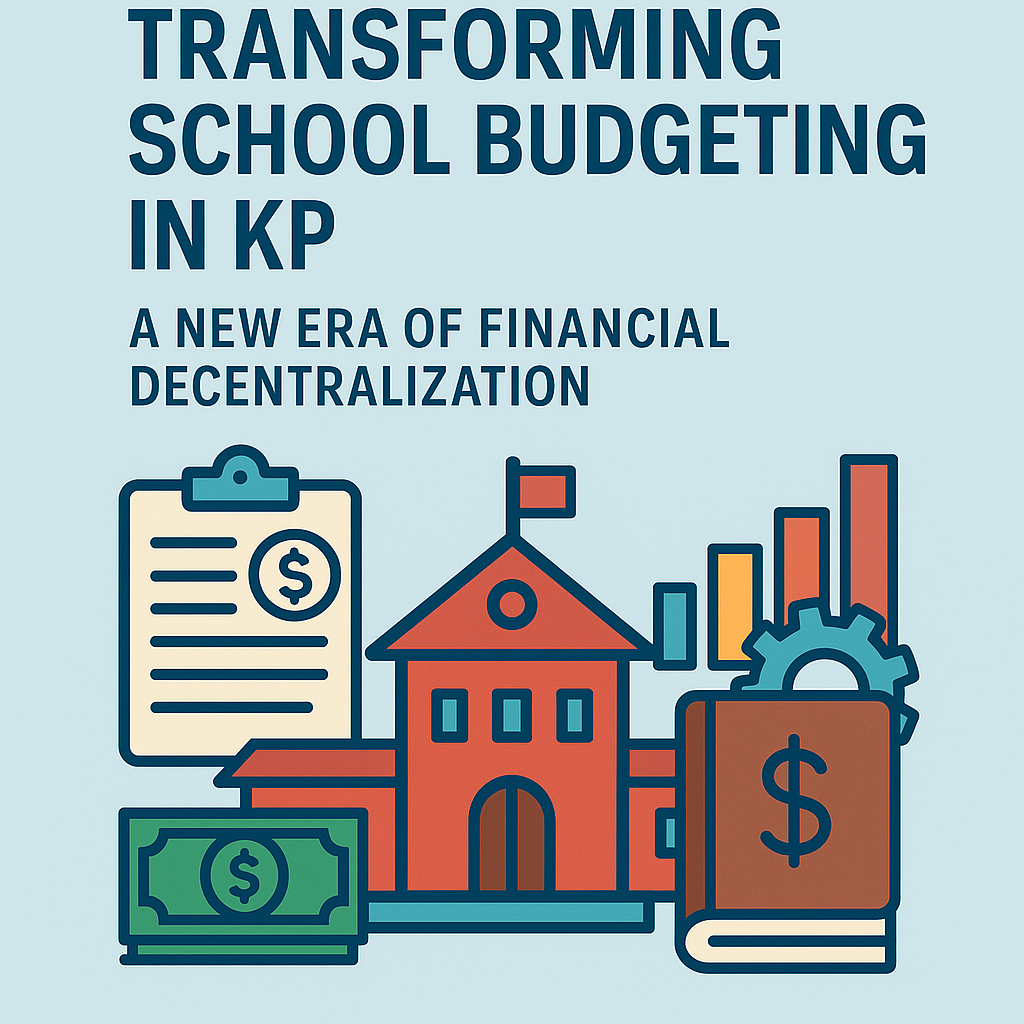
The Government of Khyber Pakhtunkhwa has introduced the Facility-Level Budget and Expenditure Management Policy 2024, signaling a major shift in how financial resources are planned and managed within the education sector. The policy decentralizes budgetary authority to individual schools, aiming to strengthen autonomy, transparency, and efficiency in the use of public funds.
Historically, financial planning and decision-making in KP’s education sector have remained largely centralized, often resulting in delays and misalignment between budget allocations and the actual needs of schools. This policy addresses that gap by delegating budgeting authority to school heads and Parent Teacher Councils (PTCs), allowing institutions to align spending directly with their operational priorities. Schools are now positioned to make context-specific decisions that can significantly improve service delivery and student outcomes.
The policy is closely aligned with the broader reform agenda under the Public Financial Management Act, 2022, which promotes performance-based budgeting and strategic resource allocation. Integrating facility-level budgeting within this framework enhances responsiveness, accountability, and efficiency in public education expenditure.
Implementation success hinges on the active involvement of stakeholders, including school leaders, PTCs, and local communities. To support this shift, the government is initiating training and capacity-building programs aimed at equipping school-level actors with the skills and tools necessary for effective financial management. This inclusive approach ensures that the reform is informed by both policy-level goals and on-ground realities.
A system of monitoring and evaluation is being established to track fund utilization, assess improvements in education service delivery, and ensure adherence to financial norms. Performance indicators, reporting mechanisms, and feedback loops are integral to the policy’s design, providing a foundation for continuous learning and adaptive management within the education system.
Despite its promise, the policy’s success will depend on mitigating risks such as unequal access to capacity support, inconsistent financial literacy among school staff, and the potential for mismanagement of funds. Special attention must be paid to ensuring that underserved and remote schools receive adequate technical and administrative assistance to implement the policy effectively.
This reform reflects a forward-looking approach to educational governance, placing financial decision-making closer to the point of service delivery. By empowering schools with control over their budgets, the government of Khyber Pakhtunkhwa is taking a critical step toward making the education system more responsive, accountable, and aligned with the needs of its communities. Effective rollout and sustained oversight will be key to achieving the policy’s intended impact on education outcomes province-wide.
This Article was published at www.publicfinance.pk.
